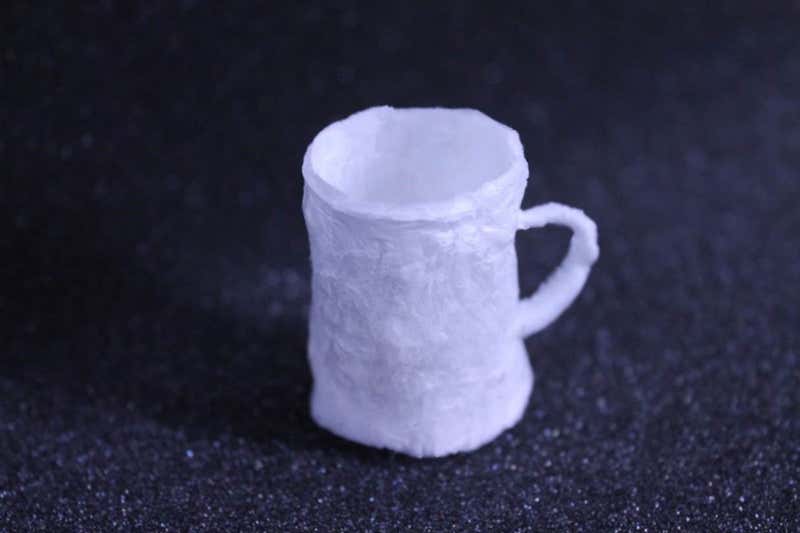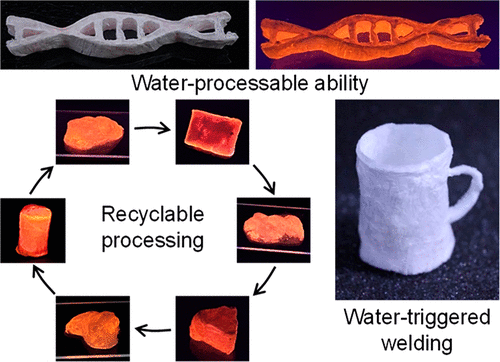Plastic plays an important role in modern life as well as the production lines of essential things for life, but recycling plastic is expensive, and plastic itself can cause heavy pollution, which has changed the material. This world changer is no longer favored (though still widely used).
A new plastic made from DNA and vegetable oils could change all that. The production process of plastic requires little energy, and the final product is easy to decompose or recycle.

A cup made from new plastic.
Traditional plastics are harmful to the environment because they are made up of chemicals derived from crude oil and cannot be recycled. The production process requires large amounts of heat and toxic chemicals, and the decomposition process can take up to hundreds of years. Plastic recycling is still inefficient, causing plastic waste to contaminate both land and water.
New types of plastics, synthesized from plants, are becoming more and more popular due to their good degradability. However, the process of producing plastics from seaweed or cornstarch is very energy-intensive.
To overcome the problem, the team at Tianjin University, led by Professor Dayong Yang, has developed an advanced plastic to overcome this problem. By attaching short strands of DNA to chemicals extracted from vegetable oils, the team created a soft and flexible material. It is known that the amount of DNA is taken from the sperm of salmon.

Mr. Yang and his colleagues tried pouring new material into the mold, placing the material in a cold environment to absorb all the water, in order to harden the compound back into plastic. Using the new plastic, the team tried to make a number of objects of various shapes, and achieved positive results.
Place new plastic materials in water, the object will return to a plastic state and can be inserted into the mold again. It seems the plastic recycling process is easy.
“What I like about this plastic is that you can break it down and start over‘, said researcher Damian Laird at the Australian University. “Most of the research is focused on the development of biodegradable bioplastics, but if we want to create a closed circle economy, we should recycle them too so that we don’t waste the material.“.
.
